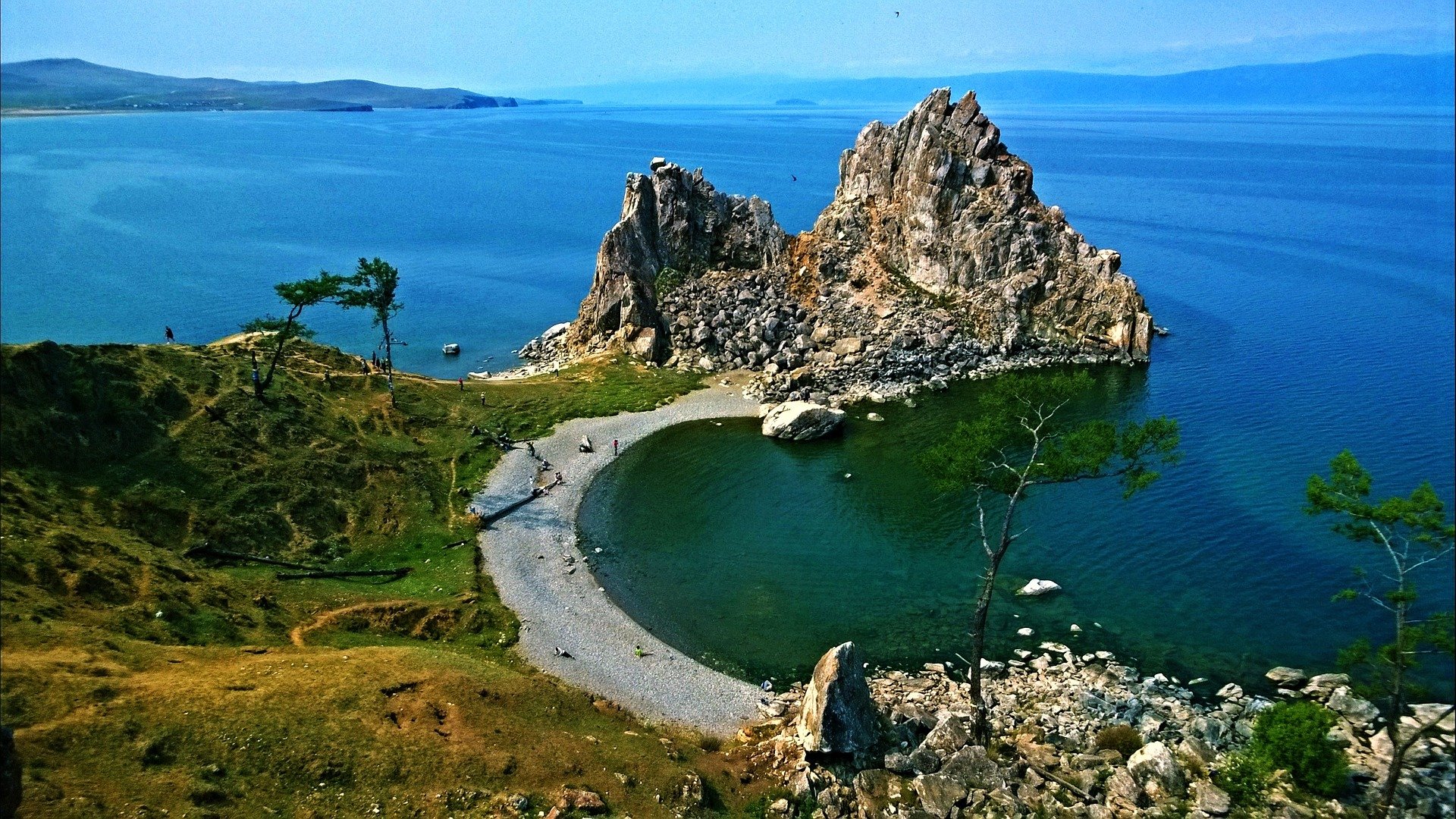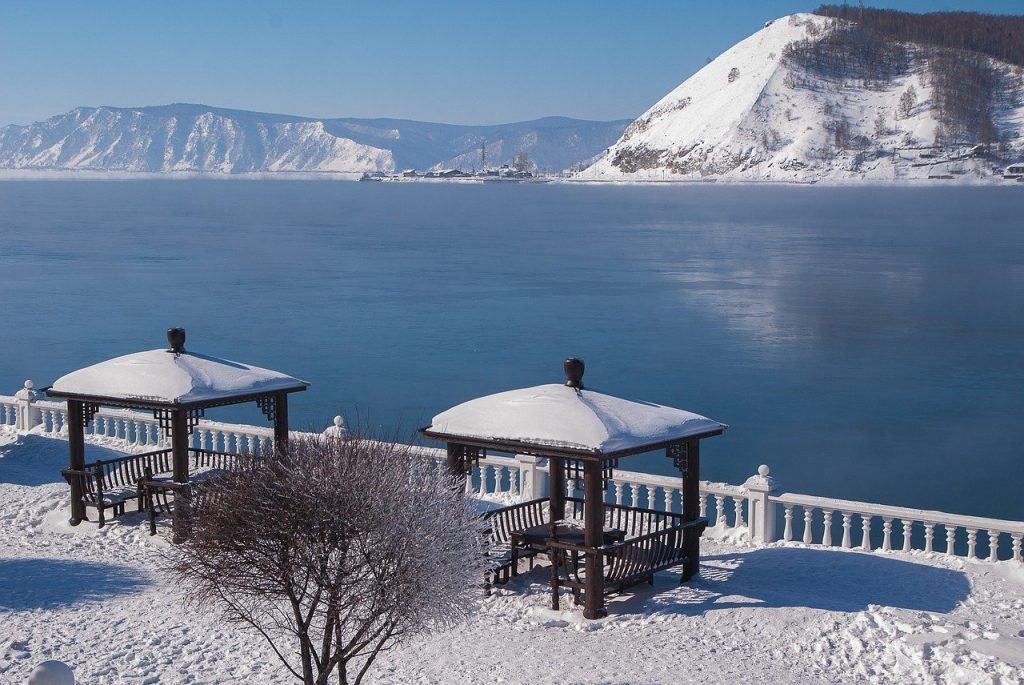
Lake Baikal
A Natural Wonder Of The World
Lake Baikal is one of the most beautiful and picturesque places in Siberia and the entire planet. Lying in a rift depression in the southern part of Eastern Siberia, this is the oldest lake in the world (about 25-35 million years old).
Baikal is also the largest freshwater reservoir on Earth, so 22% of all freshwater worldwide and 85% of Russia’s water supply are concentrated here. Its volume of water is 23 thousand km3 (approximately the amount of five Great Lakes combined in the United States).
In addition to the value of vast reserves of fresh water (which, due to low mineralization: 100 g / l, can be safely equated as distilled water), Baikal is also the deepest lake in the world. In 1996, it was included on the UNESCO World Heritage List.

Where is Lake Baikal
Lake Baikal is located in Central Asia, almost in the center of Eurasia, in the southern part of Eastern Siberia, and has the shape of an elongated crescent.
Lake Baikal Geographical Position
It lies in a cleft where Asia is splitting apart, the beginnings of a future ocean.
The lake basin is located in an ancient rift depression of glacial origin, surrounded by high peaks of mountain ranges and hills covered with dense forests, which borders the Irkutsk region and the Republic of Buryatia in the Russian Federation.
Geologists say Baikal today shows what the seaboards of North America, Africa, and Europe looked like as they began to separate millions of years ago.
More than 5,000 feet deep (1637m) at its most profound, with another four-mile-thick layer of sediment further down, the lake’s cold, oxygen-rich waters teem with bizarre life forms.
One of those is the seals’ favorite food, the golomyanka, a pink, partly transparent fish that gives birth to live young. Geologists estimate that Lake Baikal formed somewhere 20-25 million years ago, during the Mesozoic.
Surrounded by mile-high snowcapped mountains, Lake Baikal still offers vistas of unmatched beauty. The mountains are still a haven for wild animals, and the small villages are still outposts of tranquility and self-reliance in the remote Siberian taiga, as the forest is called.